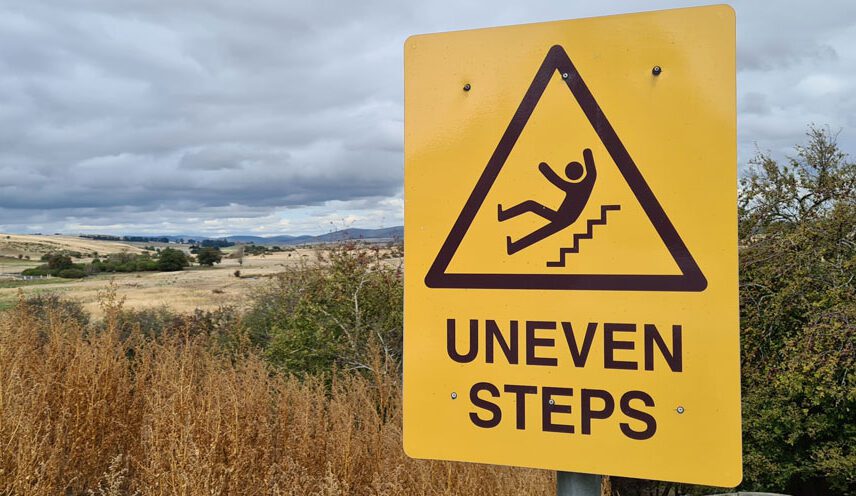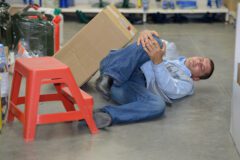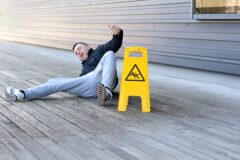Who Can Actually File A Premises Liability Claim?

Thousands of injuries occur on other people’s property each year. It may happen when a person slips and falls on the floor, tumbles down a flight of steps, or accidentally trips over a piece of flooring that causes the ground to become uneven.
So, what happens when a land or property owner fails to keep their premises safe, resulting in a visitor sustaining injuries? This kind of question is precisely what premises liability laws seek to resolve. Under the South Carolina liability law, property and landowners are expected to maintain their premises in a way that is considered reasonably safe. They also have a duty of care to fix any dangerous property conditions brought to their attention.
What happens when a property owner fails to keep their property safe? And who is eligible to file a premises liability claim when someone gets injured? Let’s dive into the topic below!
Establishing A Property Owner Was Negligent
In a premises liability suit, establishing negligence on the part of a property owner involves demonstrating certain elements. Below are some of the key factors a plaintiff must consider when trying to establish negligence occurred:
Duty of Care
It must be shown that the property owner owed a duty of care to the injured party. This duty typically involves maintaining the property reasonably safe and addressing potential hazards.
Breach of Duty
Evidence must be provided to support the claim that the property owner breached their duty of care. This could involve showing that they failed to address known hazards, ignored maintenance issues, or failed to warn visitors about dangerous conditions.
Causation
It’s also critical to establish that a causal connection between the property owner’s breach of duty and the injuries sustained by the plaintiff existed. In other words, it must be proven that the property owner’s negligence directly led to the accident or dangerous condition that caused harm.
Foreseeability
Additionally, prepare to provide an ample argument as to why the property owner should have reasonably foreseen the potential risks or dangers on their property. This can be based on previous incidents, known hazards in the area, or industry standards.
Damages
Finally, it must be shown that the plaintiff suffered actual damages or injuries due to the property owner’s negligence. This may include medical bills, lost wages, pain and suffering, or other tangible and intangible losses.
It’s also important to note that the specifics of establishing negligence in a premises liability suit can vary depending on the jurisdiction and the circumstances of the case. Consulting with an experienced attorney who specializes in premises liability can provide tailored advice based on the particular situation.
Who Can Be Found Negligent in a Premises Liability Suit?
In a premises liability lawsuit, several parties can potentially be found negligent depending on the specific circumstances of the case. These parties may include:
- Property Owners: This is the typical party that’s held responsible for maintaining the property in a safe condition and addressing potential hazards. A property owner can include individuals, businesses, landlords, or government entities.
- Property Occupiers: If the property is under the control of a tenant or occupant responsible for grounds maintenance and safety, then they may also be held liable for any negligence on their part.
- Property Managers: In cases where a property management company is responsible for overseeing the property’s maintenance and operations, they may be held accountable for any negligence or failure to address hazards.
- Contractors and Maintenance Companies: If a third-party contractor or maintenance company was hired to perform repairs, maintenance, or other services on the property and their negligence contributed to the accident, they may be found liable.
- Security Companies: If a property has contracted a security company to provide safety measures that were performed inadequately, they may be held responsible.
Who Can File a Lawsuit Against the Negligent Party in a Premises Liability Claim?
There are several types of people who can file a premises liability claim if they have been injured due to unsafe conditions on someone else’s property. These parties are typically divided into three specific categories, including the following:
1. Invitees
These are individuals who are invited onto the property for business reasons, such as customers visiting a store or clients dropping into an office. They are given the highest level of protection under premises liability laws.
2. Licensees
These individuals have permission to be on the property but are there for social or non-business reasons, such as social guests at a private residence. They are owed a slightly lower duty of care compared to invitees.
3. Trespassers
In some cases, even trespassers may have limited rights to file a premises liability claim if they can demonstrate that the property owner acted with intentional harm or willful misconduct that resulted in their injuries.
How to File a Premises Liability Claim In South Carolina
There are several key steps to follow to file a premises liability claim in South Carolina. Firstly, it’s crucial to gather evidence that supports your claim, such as photographs or videos of the hazardous condition that caused your injury, and to obtain medical records documenting your injuries and treatment.
Next, notify the property owner or occupier about the incident and your intent to file a claim. South Carolina law requires this notice to be provided within a specific timeframe, so it’s essential to act promptly. Consult a personal injury attorney experienced in premises liability cases to guide you through the legal process. Your attorney will help you draft a demand letter outlining your injuries, damages, and the compensation you are seeking.
If you cannot reach a settlement agreement, your lawyer will take the necessary steps to initiate a lawsuit on your behalf and provide you with expert guidance throughout the legal process. It is crucial to adhere to South Carolina’s statute of limitations, which requires that a premises liability lawsuit be filed within three years from the date of the injury to avoid any complications. By retaining the services of a proficient attorney, you can significantly increase your chances of effectively managing your premises liability claim in South Carolina.
Conclusion
Premises liability claims are crucial for holding property owners accountable for maintaining safe environments and preventing injuries. To establish negligence in such cases, key elements must be considered, including the duty of care, breach of duty, causation, foreseeability, and damages.
Depending on the circumstances, it’s possible to hold various parties accountable, including property owners, occupiers, managers, contractors, and security companies. However, in order to successfully file a suit, the person injured must belong to one of three categories: invitee, licensee, or trespasser. When pursuing a claim in South Carolina, it is essential to gather evidence, notify the responsible party, and seek legal guidance from a personal injury attorney well-versed in premises liability cases.
By hiring an experienced premises liability lawyer, you can navigate the legal process effectively and increase your chances of obtaining a favorable outcome. Each case is unique, so consulting with an attorney who has previously handled similar premises liability cases like your own will provide you with the best opportunity to recover your losses and receive the settlement offer that you deserve.






